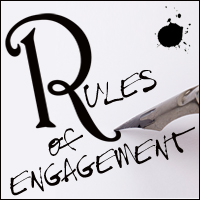.
 A notebook for fiction writers and aspiring novelists. An editor’s perspective.
A notebook for fiction writers and aspiring novelists. An editor’s perspective.
• Next post • Previous post • Index
“I want to write a book, but…”
The fiction writers that I know, we’re all daydreamers at heart. The obstacle that many of us confront is—well, we’re all daydreamers at heart. And, sorry to say, but daydreams don’t magically turn into completed novels. You’ll need to develop a whole different set of skills. See First Drafts for a deeper dive into that potential quandary.
However, to briefly recap: Our Right Brain—that artsy-fartsy, huggin’ and feelin’ hemisphere—is content to sit on a comfy couch all day, dreaming about pirates or dragons or what happened that one night at summer camp. Our Left Brain—the logical, mathematical, factual part—pays the bills. Sets the alarm clock. Saves for rainy days. Begins to write a novel, word by word, and page by page. And guess what, sometimes those diametrically opposed abilities, those two halves of the same damn brain, don’t easily mesh. However, when our Right/Left lobes are able to synchronize—that’s how best-sellers are made.
Two mistakes that novice writers often make are: 1. Ignoring the initial Right Brain part, and sitting down to write a novel without a solid game-plan.* And, 2. Ignoring the subsequent Left Brain part and pretty much never getting past the daydream stage, content to play with those private fantasies day after day, year after year and rarely, if ever, getting those words down on paper.
Part of the issue is basic plotting. Why? Because plotting involves both Right and Left sides of our brains. It’s a very transitional step in writing a novel, very much the Persephone of the literary world. You’ve got one foot firmly in Right Brain world, the other firmly in Left Brain world. Some writers hover there, unable to fully commit.
Your ability to plot out a novel—on paper (whether in outline form, or as a first draft) beginning to end—is you, the writer, making that commitment.
The Shortness and Sweetness Of It All.
What is plotting? A plot is either a single, escalating dramatic event/situation or a series of dramatic events/situations that take readers from Point A (your first page) to Point Z (your last page.) No matter your genre—sci-fi, thriller, fantasy, mystery, romance, horror, dark comedy, light comedy, coming-of-age, zombies in Manhattan… all of it!—a writer’s basically asking, and then answering, a sequential, integrated series of What If…? questions.
And, yup, we covered What If…? scenarios in the previous blog, but it’s pretty important stuff, so here’s a bit more info, because those What If…? scenarios are synonymous with creating a dynamic plot structure. For example:
Q. What if…? A woman named Maggie is vacationing alone on Skull Island. While on a moonlight walk, she discovers a suitcase with a million bucks washed up on a beach. (Your inciting incident, BTW.) Now what does she do? A. She decides to sneak the suitcase back to her hotel room to further investigate. She has a few drinks and dreams of being rich. She’s just about broke, and a million bucks would be nice. She wakes up the next morning with a clear head and ultimately decides to report the money to the authorities.
So then what? Q. What if…? The next morning she learns the local police chief is dead, the money missing and she realizes she might be implicated in some horrendous crime. Now what does she do? A. She’s already befriended Pierre, the resort’s handsome, charismatic bartender, who seems to be a rational, likeable sort. She’ll seek his advice.
So then what? Q. What if…? Pierre listens sympathetically and tells her to keep the money a secret until he can figure out what do do. She agrees.
Q. And what does Pierre do? A. He stealthily places a call to Dr. Martinique, ruthless boss of the island’s crime syndicate. A million buck is theirs for the taking.
Q. So then what? A. Ah… s’up to you. You’re providing the appropriate questions, and then providing appropriate (and sometimes intentionally misleading) answers—sequentially and compellingly. Over and over for a few hundred pages, until a reasonable conclusion presents itself.
Is there a key to good plotting? Yes. One must provide a suitable beginning, and a middle, and an ending, as seen through the eyes (POV) of your character(s) and/or through omniscient narration. Every scene you write must integrate seamlessly (within the parameters of your story line) with your previous scene and your next.
And that’s all the help you’ll get here. That should be the only help you’ll require. Because creative souls thrive on the unknown. But piercing that cosmic uncertainty in any journey imaginable—that’s your choice. Your vision. But the genre, the style, the passion, the energy, the suspense and revelation—that’s all you.
Bon voyage!
—————–
* When I say “ignoring the game plan” I’m talking about the clueless, not about Pantsers—at least the successful ones—e.g.; those among us who begin writing with little or no concrete plot in mind. But don’t confuse a pantser with a literary anarchist—knowingly or not, a pantser does have a game plan in mind, just one not physically outlined or jotted out on endless Post-It Notes. That aforementioned roadmap is still there, just its cerebral. A pantser’s journey will have a logically deduced beginning, sequentially sound middle and a relevant, often inevitable ending—or else that manuscript will never see the light of day. At least not by traditional publishers.
Refer again, should you desire, to: Where To Start. And: Focus on the Now. And: First Drafts.
.
• Next post • Previous post • Index
.